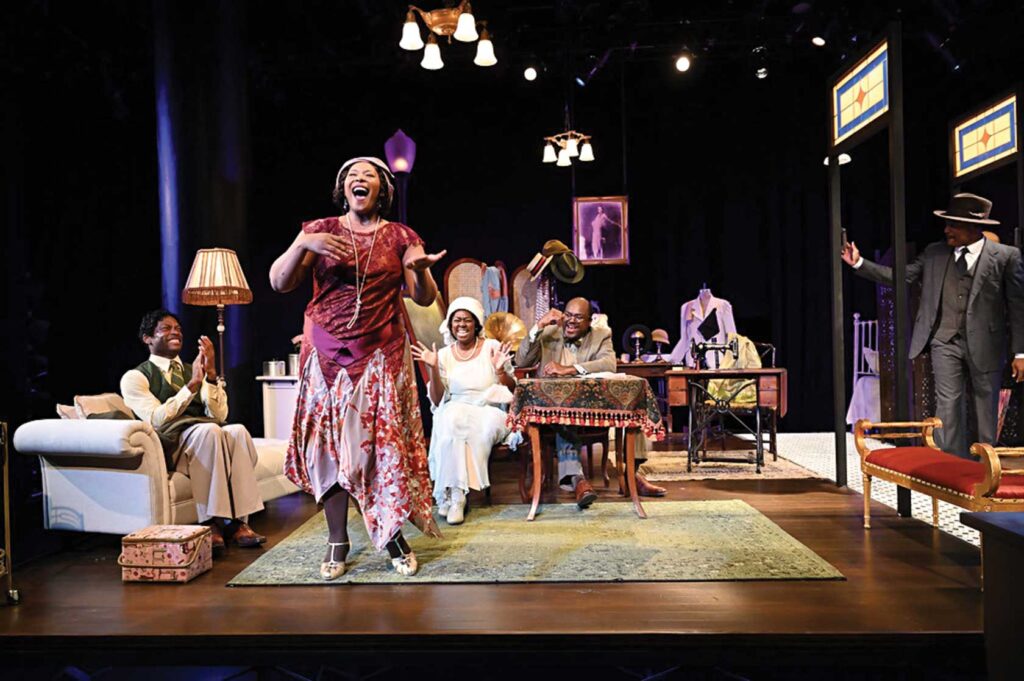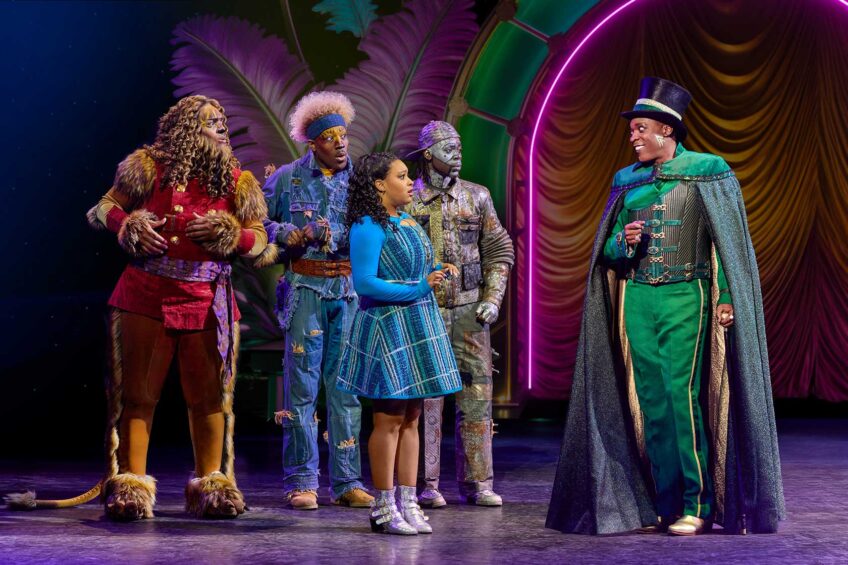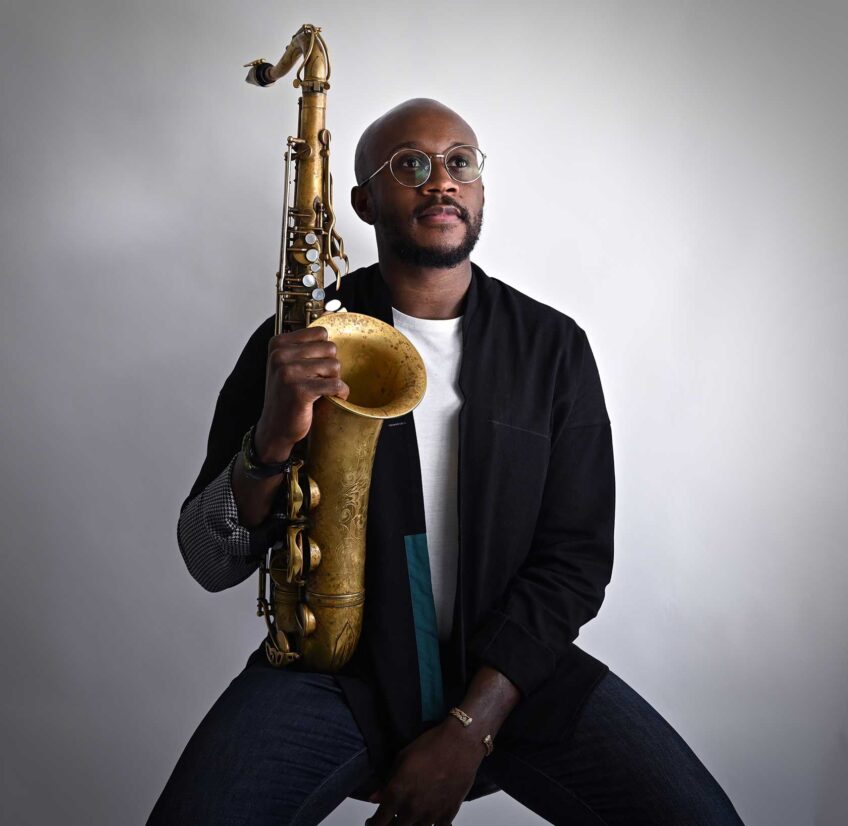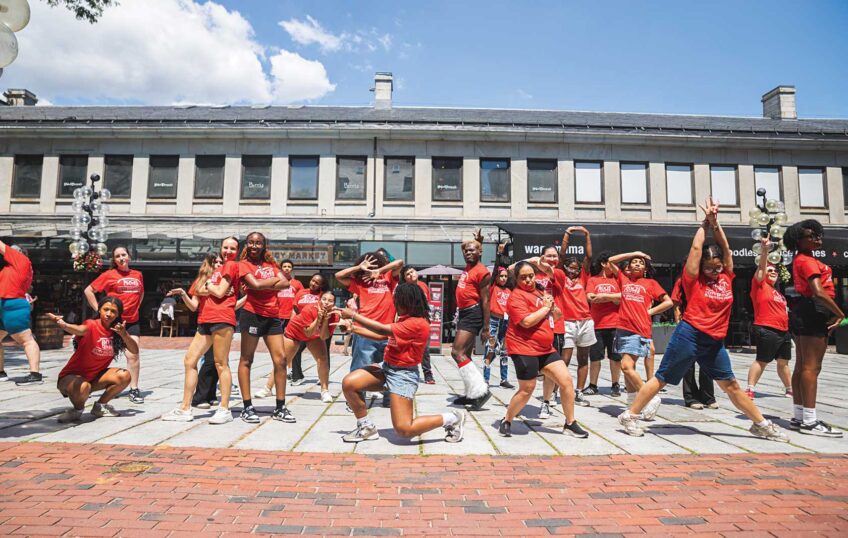
Banner Arts & Culture Sponsored by Cruz Companies
“Blues for an Alabama Sky,” on stage at Trinity Repertory Company in Providence through June 29, is riveting from the start and never lets go.
Written by Pearl Cleage, the current Distinguished Artist in Residence at the Alliance Theatre in Atlanta, this play addresses such issues as racism, sexism, homophobia and violence among Black people through the story of five characters who are never less than searingly real. Her artistry is given its full power by Trinity Rep’s five-member cast and superlative staging. Both work in seamless harmony to render the deep emotional currents, humor, pain and warm friendships that animate Cleage’s play.
Kenny Leon staged a Huntington Theatre production of “Blues” in 1997, two years after directing its world premiere at the Alliance Theatre.
The play unfolds in a Harlem apartment in 1930, as the Great Depression began to erode the vitality of the Harlem Renaissance, which had for more than a decade elevated the cultural and civic life of African Americans. Cleage’s fictional characters speak of the era’s actual leaders, such as Reverend Adam Clayton Powell Jr. As pastor of the Abyssinian Church in Harlem, he agrees to support the plan of one character, Delia, to open a family planning clinic.
The depth of talent that Trinity Rep brings to this production reflects its strong heritage. The nation’s longest-standing resident acting company, Trinity Rep was founded in 1963 and its conservatory, which includes a master of fine arts program with Brown University, ranks among the nation’s top five for theater arts. Its home is a former vaudeville house with two performance spaces, one with 500-plus seats and another with 300 seats.
Staged in this smaller theater, the production is directed by Jackie Davis, whose team includes scenic designer Michael McGarty, costume designer Amber Voner, lighting designer Erica Lauren Maholmes and sound designer Larry D. Fowler Jr.
Even before the play begins, McGarty’s set, an art nouveau sanctuary of Tiffany lamps and period furniture that is the apartment of Guy (Taavon Gamble), a costume designer, brings the audience into the story. Wafts of jazz add to the mood of stylish hospitality. Amiably delivering the usual message to muzzle phones and note exits is one of the actors, Dereks Thomas, attired in a brown hat and suit.
Extending the width of the stage, the set includes the modest apartment of next-door neighbor Delia, a social worker (Meagan Dilworth), and friend of Guy and his guest roommate Angel (Cloteal L. Horne, a Brown/Trinity Rep MFA alumna). Guy, who is gay, is devoted to Angel, who has lost her job as a nightclub singer. Nimble lighting by Maholmes casts an intimate glow around the actors in solo and duo moments and follows them as they bring the action into the aisles. They often cluster near the edge of the stage and frequently engage the audience in eye contact, drawing the audience into their circle.
Voner’s wardrobes for Guy and Angel are fantasies of personality-driven period elegance—his, impeccably tailored ensembles; and hers, sexy satin and chiffon dresses.
For Guy, the good life is beyond Harlem. A portrait of American ex-pat Josephine Baker, whose Parisian career as a singer and dancer made her an international star, hangs on his wall like the picture of his patron saint. His dream is to join her in Paris as her costume designer, and to bring Angel with him.
Every muscle in Gamble’s face expresses Guy’s energy and determination. He is very caring toward Angel, telling her that when they met long ago, “You let me see how beautiful I was.”
While Guy sips liquors from elegant decanters, Angel guzzles her drinks, cynical about his prospects and her own. When, facing eviction and poverty—the only offer she turns up is to be kept by a mob boss, she meets handsome and sincere Leland, a newcomer to Harlem from Alabama. She seizes his offer to provide for her. She flirtatiously asks, “You gonna be my lucky charm?” to which Leland quietly responds, “I’m gonna be your man.”
Quinn West, a Brown/Trinity Rep MFA student, renders conservative Leland’s vulnerability as well as his lethal unease with Angel’s friends—Guy, a homosexual, and Sam, a doctor who delivers babies and performs abortions. Thomas is a natural as kind and unassuming Sam. Dilworth’s Delia is luminous when, putting her activism aside, she gently draws Sam from friendship into love.
Horne is spellbinding as Angel, the least sympathetic character. Unlike her friends, she has no dreams—just a drive to survive that blinds her to the opportunities so passionately pursued by those who love her.







